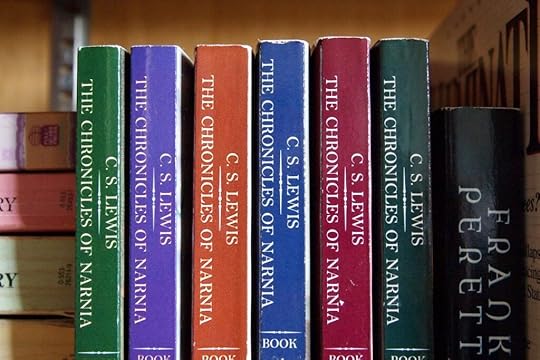Jaire Sims's Blog, page 3
July 25, 2023
Expert Advice Roundup: Tips I Love from Successful YA Authors
Nowadays, it’s easy to find advice about pretty much anything online. Whether you want it or not, someone’s always got an opinion to offer, and it’s often hard to figure out what’s credible and what isn’t. Thankfully, there are plenty of experts out there willing to offer their advice, whether through paid masterclasses and workshops or as soundbites and quotes. I’ve gathered some of the best tips that resonate with me as an author to share with you.
Jenny Han“My best advice is to first write for yourself and stay in your story and just pour all of your good stuff and bad stuff into it. By ‘stuff,’ I mean all the experiences and pleasures and little hurts that make up a life. Because even (and especially) the really hard experiences are worth having, if you can channel those emotions into something beautiful.”
BooksTo All the Boys I’ve Loved Before
The Summer I Turned Pretty
P.S. I Still Love You
Becky Albertalli“I guess I feel it’s funny to be looked to for advice on writing when I am still taking in so much from other people.”
BooksSimon vs. the Homo Sapiens Agenda
Leah on the Offbeat
Kate in Waiting
Nicola Yoon“Let your freak flag fly. Your odd, quirky, unique voice is what makes your story special. Be who you want, and be joyful.”
BooksEverything, Everything
The Sun is Also a Star
Blackout
Angie Thomas“Had I not been afraid so much, I probably would have written The Hate U Give sooner. Had I not been afraid so much, I probably would have pursued publishing and writing — and started writing —sooner. I took forever to decide that I wanted to pursue writing, because I was afraid that people would say I wasn’t good at it.”
BooksThe Hate U Give
On the Come Up
Blackout
Nic Stone“When I was starting out, I wanted to layer in a bunch of backstory in the beginning as a means of situating the reader. You don’t need to do that. You have to trust your reader, and starting with action is really the best way to do that.”
BooksDear Martin
Dear Justyce
Blackout
Suzanne Collins“I grab some cereal and sit down to work as soon as possible. The more distractions I have to deal with before I actually begin writing, the harder focusing on the story becomes. Then I work until I’m tapped out, usually sometime in the early afternoon.”
BooksThe Underland Chronicles
The Hunger Games trilogy
S.E. Hinton“If you want to be a writer, I have two pieces of advice. One is to be a reader. I think that’s one of the most important parts of learning to write. The other piece of advice is ‘Just do it!'”
BooksThe Outsiders
Rumble Fish
Taming the Star Runner
Philip Pullman“Forget about inspiration and get into the habit of writing every day. Habit has written far more books than inspiration has. If you want the Muse to visit you, she needs to know where you are: so stay at your desk.”
BooksHis Dark Materials trilogy
The Book of Dust trilogy
Galatea
Laurie Halse Anderson“Don’t worry if the early drafts don’t make sense. You need to write and write until you understand the characters and what wonderful and horrible experiences they’re having, as well as what their relationships are like and how all those things change their lives.”
BooksSpeak
Wintergirls
Twisted
John Green“Reading is just as important as writing when you’re trying to be a writer, because it’s the only apprenticeship we have, it’s the only way of learning how to write a story.”
BooksThe Fault in Our Stars
Turtles All the Way Down
Truly Devious trilogy
I look to many great writers when I need guidance, which can help me get out of a rut and stay motivated. As we take in the advice from authors we respect, we build our own lessons and mantras to help guide others in their process.
I love that idea, which brought me to where I am today, sharing my novel (soon to be ‘novels’!) and trying to help other new authors learn from my self-publishing journey. For me, the key takeaways I always champion are:
To read oftenTo write oftenTo work with what I know (like how Getting By is inspired by my life!)If you’ve been enjoying the advice I share in my blog, check out my free guide to help you kickstart your self-publishing journey. I also welcome you to reach me at jsims@jairesims.com or check out my social media, where I share more insights and resources.
The post Expert Advice Roundup: Tips I Love from Successful YA Authors appeared first on Jaire Sims.
July 18, 2023
The Final Word: Tips for Writing a Compelling YA Novel Ending
Do you know the right ending for your story? When writing YA fiction, the ending of a book is almost, if not just, as important as your story’s hook in the beginning. It’s where you resolve all dangling questions, tie up any subplots, and where your main character learns a lesson or comes to terms with the book’s events. You want your story to have a well-deserved ending that will keep the reader thinking about it long after finishing. So, let’s look at how you can create a satisfying end to your YA novel.
How Are YA Endings Different?
YA stories typically have optimistic, hopeful endings, not to be confused with things wrapping up happily ever after ending. You want the main character to feel confident that there’s a better future ahead after battling whatever challenges and obstacles they’ve encountered, even if life has more struggles in store.
Leave readers with at least a glimpse of hope for the main character regardless of any grim events that took place. If you’re writing a series, things don’t need to wrap up as nicely as an overarching thread will carry readers forward, but key events in this particular story should be concluded, for better or worse.
However you decide to end your novel, readers should feel something after reading the final word and be satisfied that the main conflict is finally resolved.
Craft an Ending that Sticks
Many YA endings unfold after the story’s conflict reaches its highest intensity between the main character and whatever antagonistic force they are dealing with, commonly called the “climax” of a novel.
Consider your story’s theme or themes and use that as the most important element in your ending. Usually, there is a main theme with smaller ones less central to a story’s plot, but as the heart of your story, ensure to wrap them all up at the end.
Your story’s message needs to be clear in the last chapter of your book, though YA readers generally prefer that it not be obvious. Unlike children’s stories, YA doesn’t require some heavy-handed moral at the end — if you’re a teen or remember your teen years, you’ll recall teens hate being told what to think or do.
Still, a lesson should be somewhat evident to your readers, as it’s pointless having a message if your audience can’t recognize it. People read YA because it aligns with their life lessons, so give them something to reflect upon that will linger in their minds once they finish your book.
How to Write Your YA Ending
If you’ve taken anything from my past advice, it’s that building tension with high stakes is key to ensuring your ending will be a compelling read. Throwing in believable, challenging obstacles your protagonist needs to struggle through will build suspense.
And in these vital moments, you want your readers to believe the hero may not achieve the ultimate goal they’ve been striving to achieve. You can also throw in a surprise plot twist that will test the main character’s wits and keep readers guessing.
Eventually, your protagonist’s final struggle will become the climax of your story, where they deal with the antagonist head-on in their most intense battle (be it literal or figurative). Through all the moments of tension, combined with an unexpected obstacle, you’ll have this intense climatic scene that will make the payoff more rewarding for your readers when the hero succeeds.
Afterward, everything you’ve submitted your protagonist to should leave them, and possibly your secondary characters, changed. Remember that growth is intrinsic to writing YA fiction. If your main character doesn’t show any positive transformation or personal development by the story’s end, your ending will feel lackluster. So, however they started the novel, be sure to leave the hero changed for the better by the tale’s end.
What if You’re Ending Part of a Series?
A great ending for an entry in a YA novel series will leave room for interpretation and speculation as readers wait for the next installment. To keep readers engaged, authors have several devices to can utilize when writing YA fiction.
One is the cliffhanger, which is good for a chapter or book ending. As mentioned, so long as your story’s main conflict or quest is resolved, you don’t have to tie up every loose end when an overarching plot hangs over your YA series. With the cliffhanger, readers need to continue on to the next book if they want to know how your protagonist resolves their present predicament.
You can see how that’s enticing. But that doesn’t mean just leaving your book with no ending. No, the lead into a cliffhanger must be carefully crafted, with the final moment being as believable as the rest of the obstacles in your story. If readers aren’t invested enough in your protagonist’s struggle, they won’t care if there are answers to questions forthcoming.
An Exception to the Rule
Alternatively, you can choose to have an ambiguous ending for your story and have your readers decide what becomes of the main character. Of all the conclusions, the ambiguous one demands the most involvement from the reader since they are actively invited to think about the significance of events for themselves.
However, some dislike this style, preferring their stories to be wrapped up once they reach the end, which is something for you to consider. But if you want your readers to reflect on the meaning of your book, then this is the ending for you.
While a resolved ending may satisfy readers, an ambiguous ending might help them get closer to what you are trying to say as an author. If done well, purposely leaving certain questions unanswered will leave readers thinking about your book well after reading the last page.
Common Pitfalls to Avoid with Your Endings
While it’s up to you to decide how to end your YA novel, there are some mistakes or pitfalls you’d be best to avoid.
Everything Falls Into PlaceReaders may think your ending is contrived if you end your story with a quick, all-too-convenient resolution. Again, struggle leads to tension leads to a well-earned conclusion.
Wait, That’s It?If you end your novel abruptly, the ending can come off as rushed or unfinished if you don’t flesh out the resolution after the climax. Great story endings resolve the storyline over the course of several scenes or chapters that tie up all the character’s arcs smoothly and wind down the action.
End Happy, But Not TOO HappyThe “happily ever after” ending, where your characters don’t experience any hardships by the book’s end, can come off as entirely unrealistic to your audience, as real life is never perfect. That doesn’t mean you can’t end your story on the happier side of things, but make sure it stays in the realm of realism. As I mentioned above, leave the audience hopeful for better rather than blissful perfection that they’ll never achieve in their own lives.
Nothing Really MattersThe book is about to end, and suddenly the main character wakes up from a dream. In what’s called the drawn-out dream, you risk undermining all the events of the book up until that point by suggesting they never take place.
While this contrivance has worked in certain films, it typically annoys readers, accusing the author of copping out, feeling the writer has betrayed their trust and downplayed the emotions felt throughout the story and their commitment to reading the story.
You don’t want your audience wondering if any real change ever affected the protagonist. I mean, how often do you wake from a dream and suddenly feel like you should rethink your entire life’s trajectory?
Endings are tough, it’s true. A lot is riding on those final moments to provide a payoff for your readers. These basic tips can steer you in the right direction, however, and help you to build a better conclusion when writing YA fiction.
If you’re looking for a more involved look into crafting the best ending possible, I explain more about that in my online course. So check it out, and feel free to reach out to me at jsims@jairesims.com with any questions about the course or how to best wrap up your manuscript.
The post The Final Word: Tips for Writing a Compelling YA Novel Ending appeared first on Jaire Sims.
July 11, 2023
The Importance of Beta Readers: How Feedback Can Enhance Your YA Novel
If you are a YA fiction author close to revising the first draft of your first book, you may be wondering what your readers might think of your story. An excellent way of finding out is by reaching out to beta readers.
A beta reader is someone who reads your manuscript to provide honest and unbiased feedback before publishing it. Think of it as beta testing your writing before you show it to your target readers. Ideally, you should have them review your manuscript before sending it to a professional book editor.
Although the role of a beta reader is to critique your work, they offer a subjective opinion. They should not serve as a substitute for a book editor, who will offer objective, structural feedback. Instead, a beta reader’s feedback on the book’s story, characters, and other content helps determine if you need to make additional revisions before an editor reviews, eliminating undue work for them and expenses for you.
Benefits of Beta Readers
You’ve spent a lot of time writing and revising the first draft of your novel, so it can be hard to look at your own work objectively, so having a trusted beta reader can give you a fresh perspective on your story.
While this benefits all authors, beta readers can be particularly supportive of self-publishing authors who typically don’t have a publisher or agent to guide them in writing for their target readers. You can get valuable insight into the strengths and weaknesses of your story, as what might make sense to you may not make sense to a reader.
A good beta reader will be able to recognize existing problems in your story, such as plot holes, inconsistencies, typos, flat characters, pacing, and confusing elements. You could also use them to test the emotional impact of your story and see if you’ve evoked the right emotions with your characters and scenes as you intended.
Finding and Selecting Beta Readers
One of the best ways to find beta readers is to look at online writing communities and forums. These hubs have an abundance of beta readers for you to reach out to, and you could form a connection with prospective readers.
Alternatively, turning to your peers, you’ll find a lot of supportive writers who will gladly take the chance to read someone’s manuscript and provide their honest critique (often simply in exchange for you doing the same). It’s as simple as reaching out and asking if anyone would be interested in reading and giving feedback on your writing.
Family and friends are also viable so long as they show interest in reading your work. The only concern is ensuring they provide unbiased opinions of your work, as it won’t be much help if they hold back on giving tips to improve the quality of your story to spare your feelings.
If you have published multiple novels, try to engage with readers who’ve enjoyed your previous work. And although you can’t be picky, choosing a beta reader familiar with your genre is ideal if you’re able. They will have certain expectations with reading such stories, making it easier to point out foibles in your manuscript.
Finally, there’s no one-size-fits-all answer when determining the right number of beta readers for your story. It all comes down to your preferences. However, I recommend having at least three to five people read your manuscript, with a mix of writers and non-writers, as one or two readers may not be enough to determine whether one’s feedback is a personal opinion or a consensus.
On the other hand, you may become overwhelmed with evaluating people’s feedback if you have more than a handful of people looking at your writing. What matters most is that they’re opinions that you can trust.
Providing Guidance and Receiving Feedback
After someone agrees to read your manuscript, it’s helpful to let them know the kind of feedback you seek. What’s the purpose of getting their opinion?
Do you want overall impressions of your story?Do you want to get down to the nitty-gritty?Will they be focusing on the character relationships?Or is it feedback on the worldbuilding you’re after?The list can go on, but if you have doubts or concerns about certain aspects of your story, address them directly to your beta reader. For example, approaching my second novel, I wanted my beta readers to look out for pacing, awkward or stiff dialogue, and organization.
So be specific when asking them questions so their answers will be more valuable after they finish reading your manuscript. Also, remember that they’re people too, and your beta readers likely will have busy lives.
Give them a realistic deadline to finish reading your manuscript, such as at least one to even three months, depending on the length of your story. With my second novel, my three beta readers finished reading my manuscript in less than two months.
Implementing Beta Reader Feedback
Once you get feedback from your beta readers, take some time to process it before you immediately go back to making more revisions. Consider which critique you may want to implement and what to ignore entirely, keeping in mind that their thoughts on your manuscript are simply opinions.
If one reader dislikes something about your book, but everyone else loves it, ignoring the outlier’s thought is probably okay. However, if you receive persistent criticisms from multiple readers, honestly assess their issues and make some changes.
Either way, the decision is entirely up to you in the end. Just be mindful that you’re open to the feedback your beta reader provides and are receptive, so you can consider each critique and avoid being defensive.
Sharing your work means opening yourself to criticisms, warranted or not, as you won’t please everyone. As a creative, it’s often challenging to receive critiques on a story you worked so hard on.
But keep in mind that these critiques are to help you make your book stronger, which doesn’t determine your self-worth. Being an author requires a certain amount of thick skin, and the sooner you adopt this mindset, the easier it will be when you send your work to an editor and then the world once your story is published.
I didn’t know about beta readers when I wrote Getting By. I mostly relied on my book editor’s feedback to strengthen my story, and while I don’t regret this decision, I would have benefitted from having beta readers read my manuscript.
If I could go back and do it again, I would reach out and find people within the community. With my subsequent novel-in-progress, I’ve been reaching out to readers who enjoyed reading my debut novel alongside fellow authors to receive some feedback. So far, it has proved invaluable. If you need a beta reader, get in touch with me at jsims@jairesims.com. I’d love to look over your manuscript if I have time!
The post The Importance of Beta Readers: How Feedback Can Enhance Your YA Novel appeared first on Jaire Sims.
July 4, 2023
Want to Explore What Makes YA Fiction Messaging Speak to All Ages?
Despite the strength of the digital age, print books are still going strong. In 2020, as the world settled in to weather the global pandemic, the print book market saw a considerable boost, and sales rose 18% in the US.
What about young adult (YA) fiction? Sales were slowly ticking up in the year before the pandemic, but with that boom in 2020, the YA novel market exploded as sales jumped roughly 30%!
So I guess that means youths everywhere stopped hanging on TikTok or whatever and started reading, right? Not entirely! A massive contributor to those sales comes from the adult population, too. So why is it that readers of all ages gravitate to the pages of YA novels?
The Anatomy of YA Stories
Before we can explore the ‘why’, let’s quickly refresh what makes a YA novel what it is. These stories focus on young people in the 12-18 bracket (though some tertiary 20-somethings do sneak in there as secondary characters.)
Even if they’re sci-fi or fantasy, they run shorter than their adult counterparts, with the average YA novel counting no more than 95,000 words on the larger end. And most importantly, they’re written to capture themes important to their teen and young adult audience, dealing with sometimes serious topics in a more digestible way.
By keeping the language relevant to the audience and making the reads quicker and more straightforward, these books speak directly to their readers, helping them deal with life’s ups and downs as the protagonist does.
A Wizarding Gateway Drug
So, when it comes to adults reading YA, one of the prime examples that come to mind is the craze over the Harry Potter series. When they started to pick up steam worldwide, the publisher began printing two cover variants, with one geared towards adult readers.
The mindset was adults didn’t want others to think they were reading a “children’s story,” but the fact was, they loved Harry and his wizardry. Some theorize that this instigated the adult interest in YA novels, that since Harry Potter, it’s become more and more acceptable for older audiences to enjoy books targeting young adults and teens.
Universal Messaging
Did people start reading novels like Harry Potter and the Philosopher’s Stone because the cover art looked cool? Not likely. It was probably word of mouth. But once they started turning the pages, something caught their eye. Many experts argue that what truly pulls all ages into YA novels are the themes.
YA centers on a protagonist’s struggle, which usually covers a variety of themes from young love to coping with loss to coming of age, self-discovery, and beyond, all through the lens of someone experiencing these things for the first time.
Whether you’re a fifteen-year-old figuring out how to navigate a crush or a thirty-something reminiscing on a summer vacation at the lake in your youth, you understand what these themes are all about.
Familiar Tales of Yore
It’s argued, and I tend to agree, that many adults reading YA novels get to feel what it’s like to experience these teenage ‘firsts’ once again. Many of us grew up reading YA, whether we liked it or not, via our school syllabus, so these stories and themes are familiar to adult audiences who continue reading them.
It also makes sense that if you grew up reading these types of books in school, your preferences would remain upon entering adulthood. What’s more, sometimes even adults need to remember how to deal with some of life’s situations.
Because while we often like to think that we’ve gone past our coming of age once we hit our twenties, in truth, we’re still learning and adapting as we go. And the lessons that YA novels subtly offer are, at their core, just as relevant at any age, even if the more adult situations have become more complex.
Easy to Read
With YA literature taking a more digestible approach to its concepts, world-building, and language, they’re easy to pick up and read. Sometimes you don’t want to invest the energy and thought into navigating overly complex plot threads and philosophical approaches to life.
That’s not to say YA novels are ‘simple’ as many titles deal with dark, mature issues despite their target audience. While they offer a certain amount of escapism in their pages, they’re still quite grounded and allow readers of all ages to explore themes with depth and care.
If anything, a lot of YA literature focuses more on developing emotions and thoughts around a given theme than adult books do. Again, because of how protagonists approach every circumstance through the lens of it being a new experience. Thus it makes for quick reading that still has substance.
Excellent Literature
Finally, it’s worth pointing out how wildly successful YA literature is because it’s so well-written. Regardless of the target age, famed YA authors from Suzanne Collins to John Green are creating magic on the page. That’s why they top sales charts and become household names due to film and television adaptations. Regardless of the target audience’s age, quality writing is still quality writing.
The stats are clear: people love YA books. From the intended audience to people well into adulthood, these stories hold something for everyone. In fact, for a long time, adults were the largest consumer audience of YA novels.
It could be as simple as an audience reading YA through their school years is just growing up and continuing to read what they know. But the quality and themes could also attract new adult readers to leaf through their pages.
Writing Getting By, it was centered around my high school experiences. But I can see how an adult audience could find something in common with Carver’s journey. Adults were once teens, too; those years are formative, living with us forever.
And to be honest, we never stop learning and growing, so YA novels hold lessons for anyone that picks them up. So if you’re an adult taking in YA stories, please feel free to find me on social media and share some of your current or past favorites.
The post Want to Explore What Makes YA Fiction Messaging Speak to All Ages? appeared first on Jaire Sims.
June 27, 2023
Rounding Up the Top 10 Writing Tools I Recommend Every Aspiring YA Author Uses
In many ways, writing is a solitary endeavor between authors and their writing implement of choice. However, even one of the seemingly simplest crafts has been iterated over the years. Aspiring authors have access to numerous tools to help them in every facet of publication.
Even since I started writing Getting By, new tools have cropped up that any YA novelist or otherwise can use to get their book onto shelves. As I’ve been writing my subsequent novel, a few have come on my radar, and I want to share some of the most accessible tools for aspiring authors like you!
Before we get into it, let me preface by saying none of this is paid advertising, so these are my honest reviews, and you can draw your conclusions from my list.
For proofreading, there are tons of applications out there that double-check spelling and grammar as you type. Most word processors have it built right into the software, after all. But signing up to use a program specifically designed to analyze text and catch repetitive writing, word use, tense, phrasing, and various other factors takes what your word processor can do a step further.
If you’re a writer, you’ve probably heard of Grammarly. Its free access gives you a lot of power without needing to break the bank. And while it’s been getting smarter in the age of AI, you’ll still need to be mindful of accepting every suggestion it makes for you. It’s a great tool to help you smooth out the worst of your manuscript, but again, it’s not to be used in lieu of an editor.
A similar tool to Grammarly, but I recommend it as an alternative. You get less use out of the free version than you do with free Grammarly, but the paid version of ProWritingAid has a lot of power to offer authors.
It still seems to do a much better job of minding the style and structure, giving comprehensive reports on your writing. And with that, it teaches you to be a better writer. If you have room in your budget for $10 per month, you can’t really go wrong with what ProWritingAid has to offer.
Yet another application that came in handy while I wrote Getting By, Hemingway focuses on text readability. It’s a great free tool to use in conjunction with free Grammarly to get closer to what paid ProWritingAid can do for your text. While it lacks integration options of other proofing software, that’s not really a deal breaker when the free service offers so much for your writing.

If you’re someone that does best talking through their ideas, dictation software is an excellent resource. Let it do the work of writing out your story while you talk it through; then, you can go back later and refine it. For some, this speeds up the writing process immensely, getting ideas on the page fast and from anywhere.
Descript is a cost-friendly version with a lot of excellent features. While the free version only allows one hour of dictation a week, the next package tier offers ten hours at only $12 monthly. If you prefer this method, it’s a great price point for a tool to help you work faster.

Something many first-times novelists overlook is how their work sounds aloud. But it’s so invaluable having your words read out loud, especially dialogue scenes, to ensure everything sounds natural to your ear. I can’t tell you how many times something I wrote sounded better in my head than it did on the page and read out loud.
For that, the free application of Acapela Box works perfectly. I made liberal use of it when writing Getting By, and I even recommend it in my course. You can choose from a variety of voices, so whatever sounds best to you, and let it read away. It’s good for pointing out repetitive words and some misspellings, giving you an early jump on proofreading so there’s less work for your editor (who is a must-have!)

Having a word processor on hand seems like a no-brainer; it depends on what you like to use. Pages are native to Mac platforms, but Windows users can still access them via browsers. Conversely, Word is native to Windows but isn’t proprietary, so you can install it on Mac devices, and it has a browser-based version, too.
But for the best ease of use, I turn to Google Docs. Anyone with a free Google account has a free Drive with limited storage capacity (but that’s hard to fill if all you’re creating are documents!) So long as you know your username and password, you can access your writing from anywhere on any device with internet access.
That kind of freedom is brilliant for a writer. Plus, if you know you’ll be off the grid, you can still download an offline version of the document to work on until you rejoin civilization again.
If you don’t want to fuss with formatting your book for publication, Reedsy Book Editor is a fantastic all-in-one app that helps authors get their stories ready for shelves faster. The word processor portion lets you organize your writing structure so it’s easy to navigate between chapters.
Once you’ve finished a draft, you can find authors through their marketplace interface who can collaborate with you on your document and refine your manuscript. Afterward, it lets you create a distribution-ready file that’s easy to shop for publishers or printers.
Now, as a writing interface, it’s pretty basic. The real value in Reedsy comes with access to a community of other authors, professional editors, and everything else that can help you publish your first book. After all, the site began explicitly to support aspiring authors!
Like Reedsy, Scrivener is for the writer who wants their book organized as they write instead of having to format from a word processor to make it publication-ready. For writers who like to plan and create outlines, descriptions, and everything else for their novels, the interface keeps it all in one place and is designed for authors to easily navigate through.
It’s also useful for writers of all kinds. The only downside to this robust tool is that you need to pay for it (but the one-time purchase can be worth it for the peace of mind it can provide!) Thankfully, you can do a free trial and see if it’s worth your investment.

When you’re done with revisions and feel ready to share your book with the world but would like a little help with the publishing process, many services support independent authors. You can, of course, try to get it out there on your own, but it’s worth investing in a service that can help. From reviewing your manuscript to creating cover art and connecting with distribution, it makes the whole process less stressful.
That’s why BookBaby is on this list. They were accommodating when it came time to publish Getting By, and I checked out a few options. If you’re like me and want to retain control of your book and its journey, connecting with BookBaby can ensure a smooth process.
They put together some excellent cover art, offered valuable insights on my manuscript, and I had the whole novel read for physical and digital print in no time (I mean, it felt like forever as I was so eager to share my book, but it wasn’t that bad).

One of the most critical pieces of your novel is the cover. It can set the tone for your entire story and determines if people will even pick up your book in the first place. For many, turning to professional artists, illustrators, and graphic designers is the way to go. However, if you have some talent, you can save money and do it yourself.
For putting together your cover art, GIMP is a reasonably powerful freeware alternative to the likes of Adobe Photoshop. For those with design skills, you can manipulate photos and typography to create the perfect cover to sell your novel. As it is free, it is a bit clunkier and less up-to-date than established platforms like Adobe’s Creative Cloud suite or Affinity, but the price is right!
There’s really no excuse for budding authors to make their publishing dreams a reality. Beyond this list are many other tools to suit your tastes and help you get the job done. Even if you prefer to write manually, it will eventually get digitized, and this list should offer enough options to get anyone started on their authorial journey.
YA authors (well, ALL authors) have enough to worry about, so at least these tools can streamline most of the process for you. All that’s left for you to write! If you have any questions about these tools and others I’ve used, email me at jsims@jairesims.com. I also share a lot of handy tips and tools on my social media, so give me a follow!
The post Rounding Up the Top 10 Writing Tools I Recommend Every Aspiring YA Author Uses appeared first on Jaire Sims.
June 20, 2023
It’s Hard Writing Alone: These Writing Communities are Great for Aspiring Writers
Self-discipline can be the bane of anyone’s existence but is especially tasking for aspiring authors. Until you sign a book deal, there’s no actual deadline for a first-time writer to worry about. You can self-impose one (ideally), but it’s too easy to keep pushing and pushing it.
I mean, even with a likely colossal publishing deal behind it, George R. Martin’s next installment in the A Song of Ice and Fire series has been pending for 12 years now, so deadlines are flexible. But that extreme example aside, what I’m getting at is that accountability helps.
We need something holding us to our goals, so we see them through, which I’ve mentioned before elsewhere. It’s also nice to have other people to talk to now and again when we step away from work to ask questions, field ideas, and hang out with. And there’s no better place to find that support than in an online community.
Online Hubs
If you’re fortunate enough to live and work in a major city, you can likely look into some great local groups and meetups for writers. But there are thousands of aspiring authors out there who don’t have that luxury.
What they likely do have, though (especially if you’re reading my blog!), is access to the internet. So we will look over some of the great communities where you can gather in the digital age. It will not be an exhaustive list, and everyone will have their tastes as to what they enjoy, but I hope there’s something you’ll like here.
What began in 1999 as a writing challenge has grown into an incredible non-profit organization supporting writers worldwide ever since. You can still enter the National Novel Writing Month challenge every year, which is its own reward, but you also connect with others in the community and find writing groups via their forums.
They also provide a whole support network for those that want to create a writing group. Overall, it’s a great site to visit, easy to navigate once you’re a member, and has much to offer writers of all ages.
Once you secure a free membership at Critique Circle, you have access to a robust writing community that has been going on for ages. It’s a well-maintained, clean-looking site with groups of all types to give you feedback on your work, discuss ideas, and whatever else you want in a community.
But to ensure not just anyone goes around demanding feedback, their system is built on credibility. You have to give feedback and build a bank of “credits,” which you then spend to submit your own manuscripts for review.
Their premium membership also offers a lot of bells and whistles, but you can get a lot of mileage from signing up for free. It’s a well-made, flashy site, but it has plenty of substance once you’re a member.
Another excellent writing community geared towards helping authors get better, it has a free membership where you’re limited to the amount of writing you can share, functioning like Critique Circle.
You earn karma points by helping other writers with feedback and then spend those points to post your content for review. They also provide access to regular classes for extra cost with exclusive access to Scribophile members.
These classes are great as you connect with established authors directly throughout the lesson to receive insight and feedback on your work. It’s a great-looking, simply structured site that is straightforward with what it offers.
It doesn’t get more to the point than this site. Again, another flavor of writing community with access to writing groups and resources. They also offer classes and prompts for inspiration and support for authors of any genre.
It’s free to sign up, and you get a lot of mileage from that basic account. But the higher membership tiers offer more benefits like storage for your writing portfolio. It’s one of the longest-running sites, so if you’re looking for a community with pedigree, this one’s another great stop. It may not be as flashy as some of the other sites mentioned, but it offers a lot and is easy to navigate.
A massive, free online community that offers a lot for so little. It’s a great space for finding writing groups, participating in contests, finding workshops, and much more. It’s a basic-looking site that sometimes feels cluttered, but don’t let that fool you when browsing around. If you want a free option with robust features, WritersCafe is the place to go.
For the fantasy and science fiction crowd, Chronicles is a forum focused on writers in that genre. While it’s not replete with features and resources like the other sites mentioned, it boasts an involved community, which is the entire point here.
They’ve been around for a long time and have credibility in the industry, so you can find like-minded writers to help you get feedback, bounce around ideas, and so much more. As a forum, it’s a basic setup, but sometimes simple is nice.
There’s a very deep, diverse community on Reddit for anything, and writing subreddits offer plenty for authors of all types. However, you need to request to join as things have changed on the site. But, once you’re a member, you can find a community that supports you at any stage, in any genre, and it’s likely all free. Though it’s not as straightforward to navigate and find exactly what you want, there’s still a lot of knowledge in the various subreddits.
Social Media
While not as straightforward as joining a website with an established interface and community, social media is a fantastic space to connect with other writers.
Facebook has plenty of groups, both online and local, that support authors. #WritingCommunity can help you find others on sites like Twitter and Instagram, and #BookTok is a big part of TikTok and will help you find a group as well.
Then there’s Pinterest; even if it’s not geared towards hosting writing groups, plenty make use of the numerous boards focused on writing to support and promote their community.
Speaking of Facebook groups, I invite students of my course into a private space to connect with their peers and myself, so they can get feedback and ask for support. I prefer Facebook over other social media sites and find it’s a great spot to grow a community. If you like what I offer and my approach to the craft, consider checking out the course and becoming a member of the community I’ve begun to foster around here.
It’s easy to get lost in our craft and personify that idea of the hermit author plying at their typewriter in creative anguish. But writers are people, too, and need to socialize with others who “get” us. It feeds our inspiration, gives us a place to discuss our anxieties over our work, and gets feedback to help us improve.
Thanks to the internet, it’s never been easier to find a community that fits you if there’s nothing local around or you’re just not into meeting face-to-face. Take some time to check out the sites I’ve shared or go deeper, as there’s bound to be something out there that speaks to you. If you have more questions about my private community, please get in touch with me at jsims@jairesims.com.
The post It’s Hard Writing Alone: These Writing Communities are Great for Aspiring Writers appeared first on Jaire Sims.
June 13, 2023
Let Me Help You With Choosing the Right Tense for Your Novel
Every story has a voice that speaks to the reader. Whether it’s the main character narrating or someone else looking in on the lives of your novel’s characters, YA authors (well, ALL authors) need to decide how they want to tell their story.
It sets your reader’s expectations, as different tenses and points of view (POV) make specific impressions on how a story is perceived. So how you approach this fundamental factor in your novel’s structure matters. But when it comes to selecting the best tense for your tale, there are a few things to consider, so I want to break that down with you.
What Is A Book’s “Tense”?
The tense of a novel has nothing to do with how stressful the content is or whether multiple people are camping (ba dum-psh!). “Tense” is the verb tense you use while writing out the action in your story.
The verbs you use express the time in which they take place, whether events are happening as they’re read or if they’re being related as something that happened in the past or will happen in the future (that said, no one writes future tense). Present and past tense each conveys a different tone to your audience.
Present
As I wrote, everything happens as the narrator sees it happening at that moment. It gives every action a sense of immediacy and urgency that typically draws readers closer to your narrator’s journey.
It makes the story more personal for them as they feel the action is happening to them as it’s happening to your protagonist. That said, it’s a less-common tense, so reading it can be jarring for most audiences, so consider that. Here’s an example for you:
“It’s so hot out, I feel dizzy and worry that I could pass out while watering the garden. Drinking from the hose makes me feel better.”
Past
The more common tense is past. Everything has happened to the characters, and the narrator relates it as such, like you’re sitting down for a coffee, and they’re telling you about what happened to them a few weeks ago.
It makes storytelling less rigid for writers since they can expand beyond one person’s point-of-view and see everything going on, like how people watch TV and film. It also makes the story less personal for readers, for better or worse. Here’s what that looks like:
“It was so hot out. I felt dizzy in the heat and worried I would pass out while watering the garden. I drank from the hose, which made me feel better.”
Who Is the Reader “Listening” To?
When discussing tense, we can’t leave out POV. The perspective you choose to write from will heavily factor into your chosen tense. As a YA author, you typically write from the first-person POV, as I did for Getting By. But you have a few other options available for sharing your story.
First-Person
This POV uses “I” and “we” to get the narrative straight from the source when discussing the characters. Typically it focuses on one person (the protagonist), but sometimes authors will choose to jump from one mind to another.
As I said, it’s pretty standard for YA authors and used elsewhere across genres and formats. It’s great for making that personal connection with the main character and helping readers feel like they’re a part of the action and emotion, going through everything with the protagonist.
Typically, there’s no mystery to the character you’re writing the POV of if they’re a reliable storyteller, as they share all of their thoughts with readers. Though it’s less popular within this format, your character can purposefully mislead readers to build more thrill and tension, but it’s a tricky device to utilize. Either way, it’s worth keeping that in mind when making your decisions.
Second-Person
The least common perspective in narrative storytelling, this POV uses “you” like I do when writing my blogs directed to readers like you! This tool is used primarily in choose-your-own-adventures, where readers are charged with deciding their path in the story and the odd children’s book.
That said, a few adventurous titles employ this as a device for their narrative structure. It’s interactive, telling the audience to act on what they’re reading, giving the story or narrator authority over what is being read.
Third-Person
Probably the POV you’ve read the most, it uses pronouns like “they”, “them”, “she”, and “he” to share the character’s experiences. It’s like readers are looking down on the world or watching it on a screen, seeing everything happening to everyone from a completely outward perspective. But you can still share a character’s thoughts, depending on how you employ a third-person POV.
Using a limited perspective, readers follow the narration of one of the characters in the book. That allows access to their thoughts and feelings throughout the story, keeping things more personal if at a distance. It’s great for keeping readers guessing since they only have one character’s reactions to events and other people as a metric.
However, if you choose an omniscient perspective, you’re still maintaining the outside-looking-in distance but with a narrator that is separate from your story. This narrator sees everything happening from all angles, allowing readers to form their own opinions with more information.
Within this format, you can have a true-omniscient narrator who can share multiple characters’ feelings, thoughts, and perspectives. Or you can use limited-omniscience, where you choose one character the narrator can get into the head of while still at a distance, allowing readers to see what other characters are up to, though not what they’re thinking.
The Best Choice For Your Novel
So with all of that said, what’s the best tense for your story? It all depends on the kind of story you want to tell. Define the goals of your narration, and that can lead you to understand the best tense.
Consider who your protagonist is and how much you want to share about them. Ask yourself who or what is the most important subject in the story, and if you want some mystery surrounding that or want your audience to know all they can about them or it.
Do you want to heighten the tension and drama by putting your readers right into your protagonist’s head or let them take it all in at a distance where they can see how everyone is reacting in a given scene?
When you know how you want your story told, you can figure out who is telling it, allowing you to narrow down the POV and tense that fits your book the best.
When you start writing a book, there is a lot to consider; that’s no secret. But figuring out the tense and perspective you want to write from is almost more important than determining the tone and genre.
It’s the structural integrity your story requires before any other content comes into play. Both tense and POV heavily factor into the impact your book will have on your audience, regardless of whether you write sci-fi romance or young adult mystery fiction.
How you narrate your story defines how your audience will see it all play out and sets you up with specific tools for your writing process while others remain in the toolbox. So make the time to consider it before jumping into your story.
If you have questions about finding the tense for your next novel or want to stay up-to-date on all the great writing tips I have to offer, find me on social media. You can also get in touch with me more directly at jsims@jairesims.com.
The post Let Me Help You With Choosing the Right Tense for Your Novel appeared first on Jaire Sims.
June 6, 2023
What Do Target Audience and Genre Have in Common With Your Novel’s Success?
When you set out to write your manuscript, you expect people to read it. It’s rare for an author who wants their book to exist in a vacuum (I mean, no one does that, right? I hope?) So it behooves you to figure out who will be reading your book so you ensure as many people as possible read it.
That’s where defining your target audience comes in. By researching and reflecting on who’s most likely to enjoy your story, you can narrow down their age, how they live, what they do for a living, and all sorts of factors contributing to how you can write your book so it will attract them.
Alternatively, sometimes you find your genre and audience as you write, though that can mean some more work on the backend with revisions to ensure it meets the standards of your prospective readers.
Why Do You Need a Target Audience?
A particular group of people will inevitably latch onto your story, as a book rarely speaks to all walks of life. When you know who will likely read your novel, you can structure your writing to best suit their tastes, making for a better experience for everyone!
Take what I’ve said in other blogs, for example; you don’t write fiction for adults with the same pacing or word choices as you do for young adult readers. You keep your novel snappy, with more teen-centric dialogue and lighter dramatic themes and tone.
Your intended audience also influences the length of your book. So, you’ll need to define who will read your book so you can ensure that they will read it!
Nailing Down Your Genre
Clearly defining the theme or genre of your book is less necessary prior to writing but will have a massive influence on who reads your book. If you’re not too concerned with mass-market success, you don’t need to put much planning into what you want your novel classed as when it’s on shelves.
Should you wish to write a zombie dog romance, go for it. However small, there’s likely a market for it. But if you’re looking to attract significant numbers with a commercial piece of writing, you’ll want to study the genre you seek to write for and plan out how to capture the attention of its readership.
Genre carries expectations from its audience, and if you miss the mark by diluting the themes or mixing too many genres, you risk alienating your readers.
A Literary or Commercial Success
Diving deeper into marketable writing, you must narrow down your personal goals to define your audience and genre. A way that divides most writing is whether they’re literary or commercial novels.
Generally, most consider literary stories to be written for writing’s sake, for the love of the art and the craft, to weave prose into a way that could make history. Unfortunately, that doesn’t always guarantee financial success (though maybe after you’re dead).
Commercial writing, on the other hand, tends to be more (arguably) generic and average, intended to attract as many people to read the book as possible and therefore sell lots of copies. They’re produced faster and cheaper than literary works, with a quantity-over-quality mindset.
When you know the purpose for writing your book, you can cater how you write a novel to suit your needs. Writing commercially for a genre will carry particular demands from publishers, such as requiring your story to hit proven, market-researched beats that will all but guarantee it to sell.
Putting Your Finger On It
So, when you want to figure it all out, there are a few things to consider:
Make notes and illustrate your ideal audience member. Figure out what they like to read, how they go about their day, and how your story can fulfill their needs.To figure out how your novel can connect with your audience, reflect on what you have in common with them, as chances are, if you’re excited about what you’re writing, they will be too.When you know the above, you’ll likely have an idea of how you can write in a way that will engage them through symbolism, word choice, imagery, story length, and the other factors I mentioned.If you still need to decide what you want to write, look to your inspirations and their style, structure, and genres to determine how best to attract a similar audience.The science to attract the best readers for your novel is there but remains inexact. But you can increase your success by putting in the legwork of researching your primary, and even secondary audience, of your chosen genre.
While mindlessly writing yields its rewards, you will have to eventually adjust your manuscript to ensure it’s a cohesive read for those most likely to enjoy it. Otherwise, your novel is going to sit in solitude, collecting dust.
When I started to write Getting By, I didn’t know it would be a YA novel. But I discovered this as I progressed, allowing me to focus on who this book would be for and how to reach them best. If you have more questions about anything, please contact me at jsims@jairesims.com or on social media.
The post What Do Target Audience and Genre Have in Common With Your Novel’s Success? appeared first on Jaire Sims.
May 30, 2023
These Great YA Reads Always Leave Me Thinking (and One is Just My Favorite!)
I mentioned in a previous post that I wasn’t an avid reader of fiction books until high school. Once I started reading books on my own time, I made it through a handful of Young Adult (YA) novels.
I guess I gravitated toward books by YA authors because of how relatable they were. Since I was once the target demographic, I found many of their topics and themes relatable. I enjoyed most of them, but a few certainly stand out for a variety of reasons.
Themes That Resonate
Most of the books I’ve read in school were YA because they were required reading as part of the curriculum — whether you’re in school or have long since graduated, you know what I’m talking about.
But the first YA book that impacted me was David Klass’ You Don’t Know Me. His book persuaded me to write my own story while encouraging me to start reading other novels with teenage protagonists.
I’m particularly drawn to male protagonists who deal with bullying, lack social skills, or struggle to make friends because I can empathize with these experiences since I’ve dealt with these issues myself.
Growing Appreciation
One book that deals with friendlessness is Speak by Laurie Halse Anderson, which I read as a freshman in high school.
I found the lead character, Melinda, relatable in that I could empathize with them being friendless in school. But since having to read it for school, I’ve developed an appreciation for the novel over the years, especially after seeing the film.
I named one of my chapters in Getting By after the book’s title because I thought it was quite fitting and a nice homage. It deals with some difficult if triggering, subject matter, but it makes you reflect.
Inspiration
Another story that impacted me was a book called The Bully. It’s a novel by Paul Langan from the Bluford series of books I read in middle school. As you can gather from the title, the aspect of bullying in the story resonated with me.
When writing my novel, Getting By, I wanted to incorporate my issues with bullying. Re-reading this novel, combined with my own experiences in school, helped me write realistic scenes where my protagonist is bullied.
Stepping Into the Pages
One of the reasons why I decided to read Stephen Chbosky’s The Perks of Being a Wallflower was because of the title. I have always seen myself as a wallflower and thought I’d likely resonate with the protagonist, Charlie. It’s always nice to see yourself in characters in a story, and it’s one of the main reasons the YA audience turns to these books.
Similarly, Bella Swan from the Twilight series is a notable example. When I read the first book, I remember thinking how Bella and I are the same personality-wise with her introverted nature and experiences with social anxiety. At times, I felt I was Bella in the book.
My Absolute Favorite
Another series I enjoyed reading is His Dark Materials by Phillip Pullman. I read the first book, The Golden Compass, in high school at the suggestion of my English teacher (to whom I am forever grateful!).
I thoroughly enjoyed the book, motivating me to continue reading the other novels in the series, The Subtle Knife and The Amber Spyglass.
I love the series so much that I bought merchandise from the film (interestingly, a handful of YA books I’ve read have been turned into movies and TV series); to this day, it remains my favorite book series.
While the books didn’t impact my writing, I enjoyed reading them all for their sense of adventure, the unique world, and the dynamic protagonists. You may find something different beyond the joy of reading them, but I highly recommend this series to anyone.
Growing and Changing
Upon graduating high school, I focused more on completing the first draft of my debut novel rather than reading more YA books. After releasing Getting By, I was almost certain I would not write another fiction story because of how long it took me to publish my first book, and I didn’t think I had another story in me to write.
But a few months after launching Getting By, I began writing my first draft for my next book, a continuation of my first. However, this story is an adult romance rather than a coming-of-age YA book. So these days, I find I write more than I read books of any kind.
Still, I hope some of the novels I’ve shared inspire you to give them a look! I’m not sure if I will continue to read or write YA fiction, as it doesn’t resonate in the same way as I grow, but that’s fine, as I’m happy to write what I know and share my knowledge with aspiring authors of the format in the meantime.
Meanwhile, I’ve finished revising this new novel, and I’m now asking for feedback from beta readers before publishing it. It’s uncertain which direction I will take afterward, but I feel most comfortable writing realistic fiction, whether for YA or Adult audiences.
Either way, I look forward to sharing my new novel when it’s ready! If you’re looking to write a book of any kind and want to reach out about my process or various resources, you know how to reach me.
Pin it on Pinterest

The post These Great YA Reads Always Leave Me Thinking (and One is Just My Favorite!) appeared first on Jaire Sims.
May 23, 2023
How Can You Write the Best Hook for Your Novel?
The intention of using a hook is to keep your reader’s attention when they read the first chapter of a story. You want to grab their interest as soon as they begin reading your novel because, if you’re successful, readers will not want to put your book down.
Perhaps you have encountered this with a book you previously read, where you begin reading a new story and find yourself immediately invested in the plot. All that said, the short answer is: not easily. But let’s get into how you can help yourself along with your manuscript.
Into the Thick of It
You need your story to get to the point as quickly as possible since attention spans, especially among teenagers, are short. That is particularly true in the digital age when there are so many distractions and people have plenty of options other than reading a good book.
By being mindful of your audience’s attention span and establishing a great hook at the beginning of your story, you’re more likely to motivate them to read the rest of the first chapter or finish the entire book.
Simplicity and brevity are key, rather than bogging down your pages with too much description and exposition. Grip your readers from the start and let them know what they are in for before taking them through your story’s plot.
A Gentle Nudge
Keep in mind there is a difference between writing an impactful beginning and rushing the plot. For instance, I recommend not writing your main character’s backstory at the start of your book despite how tempting it is to tell your readers about your lead’s past upfront.
It’s preferred to save the backstory for later and let readers gradually learn about your protagonist throughout the journey. You don’t need to dump information all at once — only enough for your readers to read beyond the first chapter because they want to learn more.
You can help yourself find a balance between writing practice and reviewing books you’ve enjoyed reading. Go back over the stories you’ve read and see how the authors write their hooks and develop their main characters.
An Inexact Science
There’s no right way to craft a gripping hook for your story. But you can help yourself out by being mindful of your story’s genre. For example, introducing your hook with a murder investigation would probably make more sense in a crime/mystery novel than a romance story.
Furthermore, you’re not limited to where the hook should begin. The opening hook could be the first line, scene, event, or within the first few pages. But ideally, it shouldn’t take too long for readers to get to that hooking moment. Otherwise, you’ll lose them before they even finish the first chapter.
No Hook? Not a BIG Problem (But Still a Problem)
In honesty, I wasn’t aware of how to best write a hook when I wrote my debut novel, Getting By. It was after publishing my book that I became aware of that fact. Thankfully, a few factors save the opening pages.
First, the beginning chapter of my book immediately begins with a vivid description, which I feel is an appropriate way to draw my readers into my story. Also, using an engaging narrative voice to introduce the book is particularly useful because my novel is in first-person.
The beginning of my opening chapter also introduces the story’s central conflict within the first few pages. While it isn’t the most compelling way I could’ve gone about it, I’m satisfied with the start of Getting By.
Knowing what I know now, I went into writing the first draft of my second novel with the intention of creating a solid hook. Since my second story is an adult romance, I wanted my hook to focus on when my protagonist meets his potential love interest for the first time and how they react in that encounter.
This time around, I think I’ve nailed it, though when I submit my manuscript to an editor, I am eager to get their opinion and plan to take any guidance on bolstering my hook if need be.
If you want to understand more about the ingredients that could make a good hook for your story, check out my resources on my site. You can also reach me by email with questions at jsims@jairesims.com or on social media.
The post How Can You Write the Best Hook for Your Novel? appeared first on Jaire Sims.



